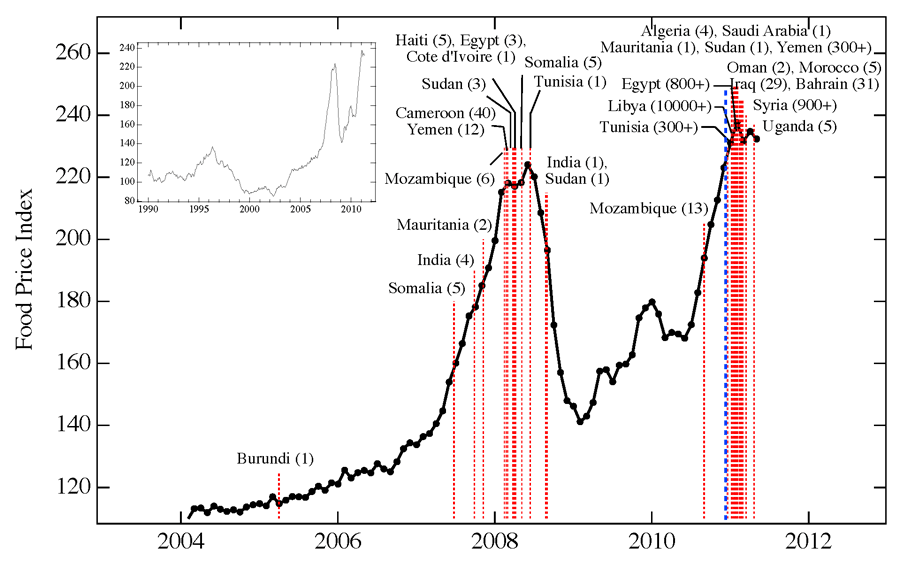-
Maria Godoy, The Salt
Can Riots Be Predicted? Experts Watch Food Prices
October 19, 2012 By Wilson Center StaffWhen French peasants stormed the Bastille on July 14, 1789, they weren’t just revolting against the monarchy’s policies. They were also hungry.
From the French Revolution to the Arab Spring, high food prices have been cited as a factor behind mass protest movements. But can food prices actually help predict when social unrest is likely to break out?
Yes, say a group of researchers who use mathematical modeling to describe how food prices behave. Earlier this summer, their model had predicted that the U.S. drought would push corn and wheat prices high enough to spark social unrest in other parts of the world.
“Now, of course, we do see this happening,” says Yaneer Bar-Yam of the New England Complex Systems Institute in Cambridge, Mass. And unless those food prices come down, the researchers warned last week, more waves of riots are coming.
Sources: New England Complex Systems Institute.
Image Credit: New England Complex Systems Institute.
 A Publication of the Stimson Center.
A Publication of the Stimson Center.




